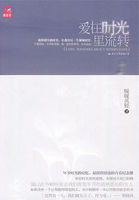In doubt whether to speak or keep silence, he takes a middle course, and while purporting to speak for himself, is careful to lay stress only on the points whereon all are agreed, to enlarge eloquently on the doubtfulness of things, and to give to words the very least meaning that they will carry.Such a procedure, which glides over essentials, and handles truisms or trivialities with a fervour of conviction, has its functions in practice.It will win for a politician the coveted and deserved repute of a "safe" man -safe, even though the cause perish.Pleaders and advocates are sometimes driven into it, because to use vigorous, clean, crisp English in addressing an ordinary jury or committee is like flourishing a sword in a drawing-room: it will lose the case.
Where the weakest are to be convinced speech must stoop: a full consideration of the velleities and uncertainties, a little bombast to elevate the feelings without committing the judgment, some vague effusion of sentiment, an inapposite blandness, a meaningless rodomontade - these are the by-ways to be travelled by the style that is a willing slave to its audience.The like is true of those documents - petitions, resolutions, congratulatory addresses, and so forth - that are written to be signed by a multitude of names.
Public occasions of this kind, where all and sundry are to be satisfied, have given rise to a new parliamentary dialect, which has nothing of the freshness of individual emotion, is powerless to deal with realities, and lacks all resonance, vitality, and nerve.
There is no cure for this, where the feelings and opinions of a crowd are to be expressed.But where indecision is the ruling passion of the individual, he may cease to write.Popularity was never yet the prize of those whose only care is to avoid offence.
For hardier aspirants, the two main entrances to popular favour are by the twin gates of laughter and tears.Pathos knits the soul and braces the nerves, humour purges the eyesight and vivifies the sympathies; the counterfeits of these qualities work the opposite effects.It is comparatively easy to appeal to passive emotions, to play upon the melting mood of a diffuse sensibility, or to encourage the narrow mind to dispense a patron's laughter from the vantage-ground of its own small preconceptions.Our annual crop of sentimentalists and mirth-makers supplies the reading public with food.Tragedy, which brings the naked soul face to face with the austere terrors of Fate, Comedy, which turns the light inward and dissipates the mists of self-affection and self-esteem, have long since given way on the public stage to the flattery of Melodrama, under many names.In the books he reads and in the plays he sees the average man recognises himself in the hero, and vociferates his approbation.
The sensibility that came into vogue during the eighteenth century was of a finer grain than its modern counterpart.It studied delicacy, and sought a cultivated enjoyment in evanescent shades of feeling, and the fantasies of unsubstantial grief.The real Princess of Hans Andersen's story, who passed a miserable night because there was a small bean concealed beneath the twenty eider-down beds on which she slept, might stand for a type of the aristocracy of feeling that took a pride in these ridiculous susceptibilities.The modern sentimentalist works in a coarser material.That ancient, subtle, and treacherous affinity among the emotions, whereby religious exaltation has before now been made the ally of the unpurified passions, is parodied by him in a simpler and more useful device.By alleging a moral purpose he is enabled to gratify the prurience of his public and to raise them in their own muddy conceit at one and the same time.The plea serves well with those artless readers who have been accustomed to consider the moral of a story as something separable from imagination, expression, and style - a quality, it may be, inherent in the plot, or a kind of appendix, exercising a retrospective power of jurisdiction and absolution over the extravagances of the piece to which it is affixed.Let virtue be rewarded, and they are content though it should never be vitally imagined or portrayed.If their eyes were opened they might cry with Brutus - "O miserable Virtue!
Thou art but a phrase, and I have followed thee as though thou wert a reality."It is in quite another kind, however, that the modern purveyor of sentiment exercises his most characteristic talent.There are certain real and deeply-rooted feelings, common to humanity, concerning which, in their normal operation, a grave reticence is natural.They are universal in their appeal, men would be ashamed not to feel them, and it is no small part of the business of life to keep them under strict control.Here is the sentimental hucksters most valued opportunity.He tears these primary instincts from the wholesome privacy that shelters them in life, and cries them up from his booth in the market-place.The elemental forces of human life, which beget shyness in children, and touch the spirits of the wise to solemn acquiescence, awaken him to noisier declamation.He patronises the stern laws of love and pity, hawking them like indulgences, cheapening and commanding them like the medicines of a mountebank.The censure of his critics he impudently meets by pointing to his wares: are not some of the most sacred properties of humanity - sympathy with suffering, family affection, filial devotion, and the rest -displayed upon his stall? Not thus shall he evade the charges brought against him.It is the sensual side of the tender emotions that he exploits for the comfort of the million.All the intricacies which life offers to the will and the intellect he lards and obliterates by the timely effusion of tearful sentiment.















